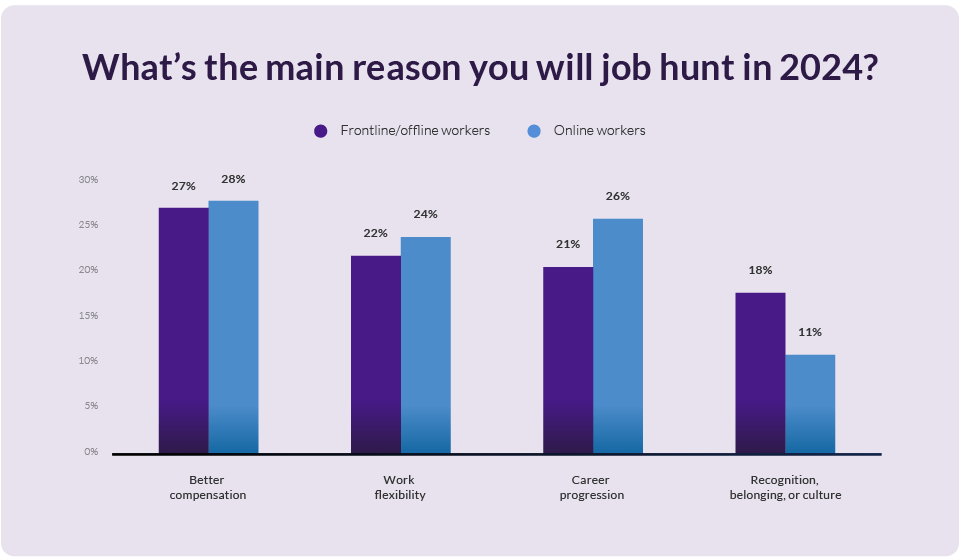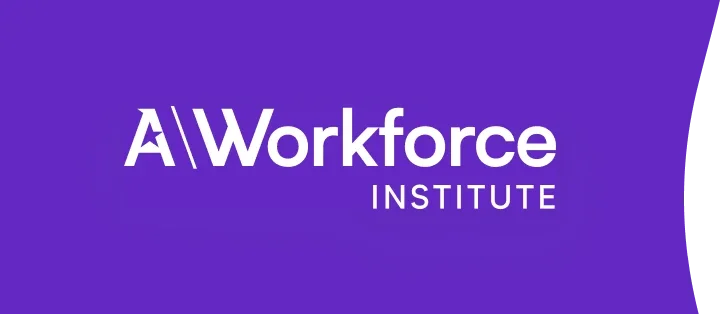Non-monetary ways to motivate and retain frontline workers

This resource is brought to you by:
Topics Covered:
Attraction and Retention
Motivating offline workers takes more than just a paycheck. Nearly half of frontline employees are job hunting — but it’s not always about money. Many feel unseen, unheard, and disconnected, making them more likely to leave your organization.
The good news? You can boost motivation and retention without increasing salaries. Discover three powerful, non-monetary strategies to engage frontline employees, keep them committed, and build a workplace where they want to stay.
Why are frontline workers really job-hunting in 2024?
Compensation and flexibility still matter, but frontline workers are far more likely than online employees to leave over recognition, culture, and belonging. They’re not just looking for a paycheck — they’re looking for a workplace where they feel valued and connected.
With 42% of frontline workers planning to job hunt this year, the right employee experience can make all the difference.

The recognition gap that’s pushing frontline workers away
Offline workers are 32% more likely than their online counterparts to say they’re never recognized — and 20% less likely to receive recognition even once a month. That’s a big problem because regular, meaningful recognition has been proven to drive engagement, retention, and business success.
Are you closing the gap or letting top talent slip away? Let Achievers show you how recognition impacts frontline motivation — and what you can do about it.
Discover how to motivate and retain your frontline workers
Frontline workers are 72% more likely to leave for better recognition, culture, or belonging — not just compensation. But what can you do about it?
We dive into the critical steps to motivate offline workers and boost retention without breaking the bank, including:
- Ask: How to gather feedback from your frontline employees in real time.
- Answer: Simple yet powerful ways to show you’re truly listening.
- Act: Small actions you can take today for long-term results.
Curious how these steps can drive real impact? Download Non-monetary ways to motivate and retain frontline workers for actionable strategies you can start implementing right away.

Join our mailing list
Stay up to date with the latest in workforce science from Achievers Workforce Institute.